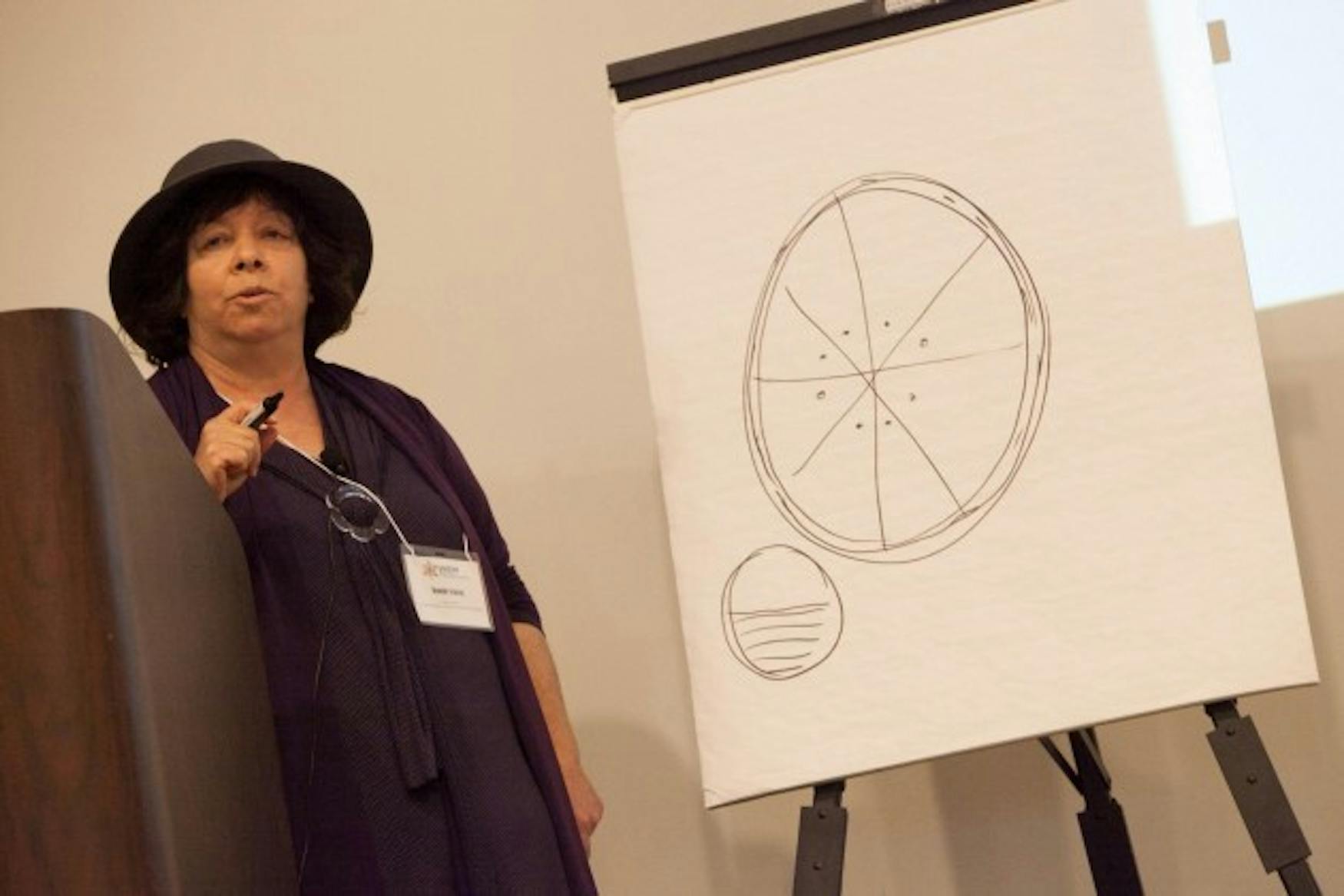Journalist speaks on media, sectarianism
Israeli journalist Bambi Sheleg addressed participants as the second keynote speaker of the Brandeis Visions for Israel in an Evolving World conference Sunday evening in Levin Ballroom. She spoke about the role of media and sectarianism in Israeli society.
Sheleg is the founder and editor of Eretz Acheret, a magazine and website that "provide[s] Israeli and Diaspora Jews with a platform for open discourse and dialogue on all facets of the Israel-Diaspora relationship, as well as the opportunity to express their identity through the written word," according to its website. The magazine's name translates as "A Different Israel."
Before founding Eretz Acheret, Sheleg was the editor of a children's magazine. Following the assassination of Israeli Prime Minister Yitzhak Rabin in 1995, Sheleg said that she "got the feeling that something went totally wrong in the inner dialogue of Israeli society" and "that no one could understand each other." She founded Eretz Acheret, in 2000 in order to "invest in a new kind of dialogue" and "bring people together from different sectors and different beliefs," she continued.
Sheleg said that she sought to work with individuals outside her "sector" of society and those "who don't share my education and my beliefs." Eretz Acheret aims to answer the question of "who are the Israelis?" she said.
"What do people have in their minds?" she inquired further. "What are their dreams, what are their pains and what are their values?" According to Sheleg, a "pluralistic editorial board" of 25 "people from the periphery and people from the center" of society works to answer these questions.
Eretz Acheret aims to cover "things that are considered to be boring by the commercial media" because they are more moderate than radical but "many times they are the most important things that we have to deal with," she said.
"Israel is a very sectarian society," Sheleg continued, noting that many people are primarily concerned about the sector that they themselves occupy. She then posed the questions: "Who are the people in the center? Can you define them?" One answer she received was, "all the people who are willing to dialogue [with] one another." The response she herself gives is, "people who care more about the future of the whole society than they care about the future of the sector they came from."
"There are a bunch of those people in all ... Israeli sectors," said Sheleg. Due to media bias, however, "we don't know our allies in the different sectors because they are considered to be boring," she continued.
Though there are political parties that operate within this center of society and prioritize compromise, they often fall apart, she said. The changing role and definition of Zionism may be a factor, she continued.
"I think we are in the second stage of Zionism, meaning we've been a country, but we don't know what it's about," said Sheleg. "We feel it, but we don't know how to articulate it."
She continued, "Here we are, and it's so different from what we were educated to be. This is not because someone is bad. It is because this is the encounter with reality."
The next step, said Sheleg, is to examine "what we can do together in order to have a shared future" and to once again create a set of shared values.
Sheleg encouraged participants to "get interested in our own people in ways we've not been interested in them in a long time." She suggested this could be done through media, building toward these shared values and trying "to understand the Israeli society and what's going on."
"Don't tell the Jews who they are; ask them," she said. "There is a lot to listen to."
Joshua Kaye '13, a bVIEW facilitator, thought the event was succesful. "I thought she was very engaging with the audience," said Kaye. "Her message was about promoting dialogue and an openness and a willingness to talk to other people, and that really fit the entire theme of the conference."



Please note All comments are eligible for publication in The Justice.